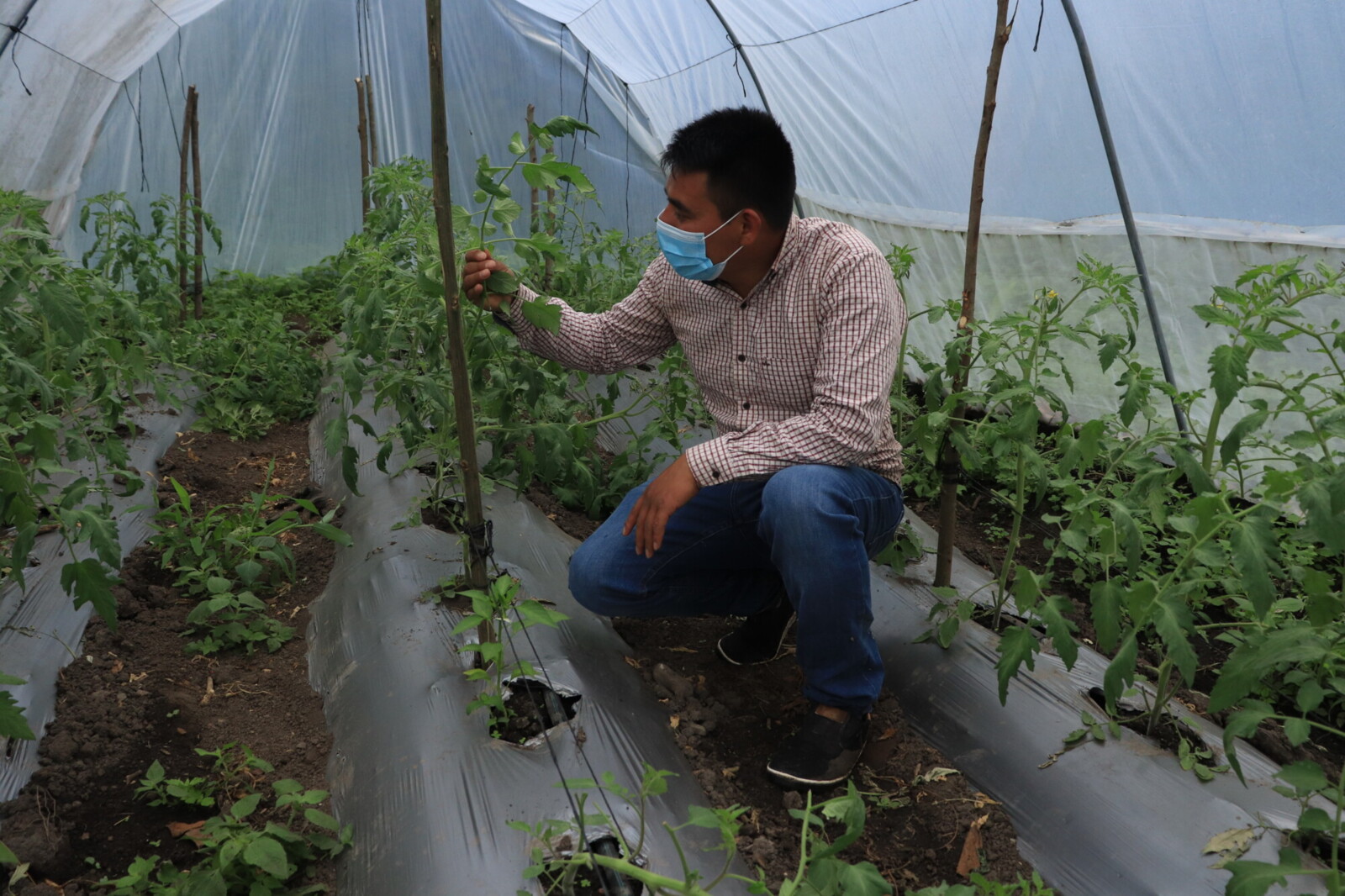
Tomatoes grow in a community greenhouse in Nebaj. Guatemala / AFSC
Tomatoes are a key ingredient in tamales, stews, and other traditional dishes in Guatemala. But in the highlands of the western part of the country, they’re extremely difficult to grow. As a result, community members have long had to buy their tomatoes from the market. And that is expensive, especially during the holidays.
But this year, things are different for many people in the Ixil Mayan community of Nebaj, Quiché.
Thanks to supporters like you, AFSC helped community members build greenhouses this year to protect their crops from heavy rains and grow more produce. Since then, they have grown lots of tomatoes—as well as peppers and other vegetables. And in November, they had their first harvest! It was the first of what they hope will be many harvests in the years ahead.
To date, 23 families have harvested more than 1,800 pounds of tomatoes in Nebaj. In addition to having more food for their families, community members sold some of the produce at the local market to supplement their incomes. That presents them with more economic opportunity to build sustainable livelihoods in their communities at a time when many often feel forced to seek work by migrating elsewhere.
Like many rural areas of Guatemala, the Ixil communities have faced three major invasions and tremendous violence throughout their history. That includes the arrival of Spanish settlers in the early 16th century as well as the killings of seven Indigenous leaders who defended the territory in 1936. In the 1980s, government military forces massacred thousands of Mayans—and displaced many more from their villages. A truth commission later found that the United States had provided funding and training to the military that committed acts of genocide and other human rights violations against Mayans in that period.
The historical trauma is still felt by Ixil survivors, their children, and their grandchildren. But today, community members are working to strengthen their connections with the lands their families had once been forced to flee. They are also organizing to protect their rights and ancestral values, in the face of what they consider a fourth invasion—the arrival of foreign extractive projects that further threaten their communities and worldview of life.
AFSC supports young people in Guatemala organizing and advocating to transform systems of oppression. We work closely with local partner organization Chemol Txumb'al ("Youth that weave knowledge" in the Ixil Mayan language). The organization was founded by Ixil youth in 2009 to protest the construction of hydroelectric megaprojects in the region. These megaprojects have led to depletion of natural resources, environmental destruction, and displacement of communities—all to the benefit of foreign interests.
Over the past two years, AFSC has worked with Chemol Txumb'al to provide popular education workshops to 55 Ixil youth. We examine capitalism, colonialism, and patriarchy, and their impacts, the autonomy of Indigenous communities, and how people can organize and advocate to protect their human rights and build peace with justice.
Now we are building on that work by helping community members in Nebaj in their larger quest for food sovereignty. Youth are building their knowledge of agroecological techniques that focus on sustainability, respect for the land, and Indigenous farming practices. The project also provides women more opportunities for leadership in agriculture—an activity that has traditionally headed by men. Today seven women are responsible for community greenhouses in Nebaj. And community members are also creating economic opportunities to support their families, so that they can deepen their roots in their territories with dignity.
That includes community members like Jacinto Ceto, 25, who told us, “I feel inspired to continue working in agriculture because the opportunity is expanding beyond corn and beans. This is something that I like. It connects me with my culture and that I want to pass on to my son.”
Today, community members are also starting to grow strawberries, expanding on the success of their first crops. And they’re looking forward to what the next year will bring.
Thank you for your support of these efforts. With your help, AFSC and our partners are supporting communities in Guatemala in their ongoing struggles—and building a more just, sustainable future for all.
*This project is also supported with funding from the New Zealand Embassy in Mexico.